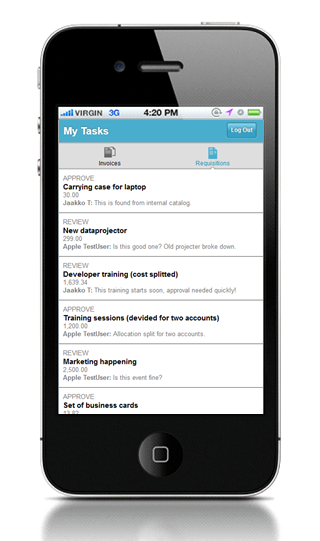
"We always overestimate the change that will occur in the next two years and underestimate the change that will occur in the next ten."
I wish I'd said that but Bill Gates thought of it first. It's an often quoted piece of Gates wisdom from his book
The Road Ahead and anyone who has observed technology for more than 10 years will recognize this phenomenon.
It was a decade and a half ago that we overestimated e-procurement. We said it would eliminate maverick spend, encourage compliant behavior, provide better spend analytics that would facilitate better decisions and save money. The user experience of buying in business would be as easy and intuitive as home shopping. That vision didn't materialize - not immediately in any case. It was harder than we thought. The technology infrastructure we were using wasn't up to the challenge and the theoretic results that we put so much store in didn't play out in practice.
That was then and this is now. We overestimated what could be achieved in the short term but did we underestimate the long term view? Sure we did. Reading the press release from Basware this week launching Basware Purchase it's like reading the predictions of 1997 - the same promises, this time being delivered, but in 1997, we never thought we'd have a full functional procurement app in our pocket.
 "We always overestimate the change that will occur in the next two years and underestimate the change that will occur in the next ten."
I wish I'd said that but Bill Gates thought of it first. It's an often quoted piece of Gates wisdom from his book The Road Ahead and anyone who has observed technology for more than 10 years will recognize this phenomenon.
It was a decade and a half ago that we overestimated e-procurement. We said it would eliminate maverick spend, encourage compliant behavior, provide better spend analytics that would facilitate better decisions and save money. The user experience of buying in business would be as easy and intuitive as home shopping. That vision didn't materialize - not immediately in any case. It was harder than we thought. The technology infrastructure we were using wasn't up to the challenge and the theoretic results that we put so much store in didn't play out in practice.
That was then and this is now. We overestimated what could be achieved in the short term but did we underestimate the long term view? Sure we did. Reading the press release from Basware this week launching Basware Purchase it's like reading the predictions of 1997 - the same promises, this time being delivered, but in 1997, we never thought we'd have a full functional procurement app in our pocket.
"We always overestimate the change that will occur in the next two years and underestimate the change that will occur in the next ten."
I wish I'd said that but Bill Gates thought of it first. It's an often quoted piece of Gates wisdom from his book The Road Ahead and anyone who has observed technology for more than 10 years will recognize this phenomenon.
It was a decade and a half ago that we overestimated e-procurement. We said it would eliminate maverick spend, encourage compliant behavior, provide better spend analytics that would facilitate better decisions and save money. The user experience of buying in business would be as easy and intuitive as home shopping. That vision didn't materialize - not immediately in any case. It was harder than we thought. The technology infrastructure we were using wasn't up to the challenge and the theoretic results that we put so much store in didn't play out in practice.
That was then and this is now. We overestimated what could be achieved in the short term but did we underestimate the long term view? Sure we did. Reading the press release from Basware this week launching Basware Purchase it's like reading the predictions of 1997 - the same promises, this time being delivered, but in 1997, we never thought we'd have a full functional procurement app in our pocket.


 Copenhagen - spiritual home of Tradeshift[/caption]
Copenhagen - spiritual home of Tradeshift[/caption]
